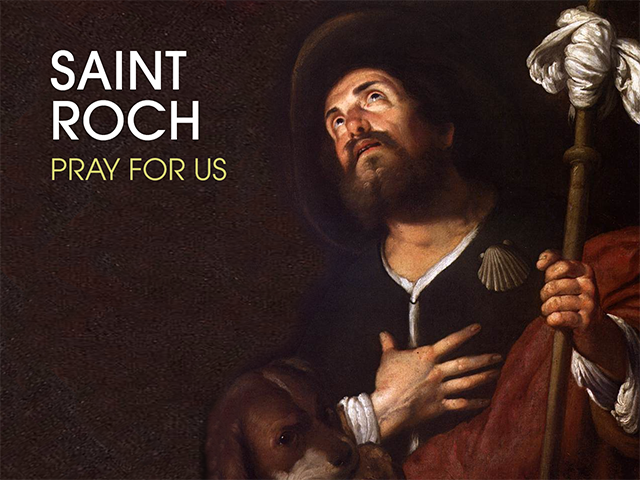



St. Roch, also known as St. Rocco (d. 1327), was born in Montpellier, France, the pious son of the city's governor. He was born with a red cross on his chest, a sign that the Virgin Mary answered his mother's prayer to heal her barrenness. His parents died when he was 20, after which he gave his wealth to the poor and handed the government of the city over to his uncle. Free from earthly cares, he set off as a pilgrim for Italy. When he came upon a town badly struck by the plague, he sojourned there to help the sick. He cured many people by making the Sign of the Cross over them. The same miracles occurred at every plague-infested area that he passed through on his way to Rome. When he reached Piacenza he himself contracted the disease in his leg, and he awaited his death in a remote forest hut. Providentially, a count's hunting dog found and befriended him, brought him food, and licked his wounds. A spring arose nearby providing fresh water. The count, one day following his dog, discovered the saint and aided him in his recovery. Slowly St. Roch's health was restored, after which he returned to his native Montpellier. He refused to disclose his identity to the townspeople so that he could remain poor and unknown. His obfuscation aroused suspicion that he might be a spy, and he was cast into prison by his uncle. St. Roch died in prison five years later. His identity was then discovered by the red cross birthmark on his chest. At his funeral many miracles attested to his sanctity, and a church was erected for his veneration. St. Roch is the patron of dogs, surgeons, invalids, bachelors, and against plague and pestilence. His feast day is August 16th.